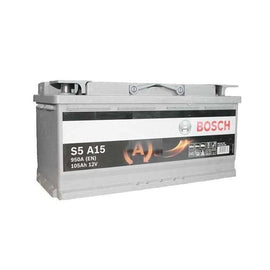There’s no doubt that your car’s battery is one of the most important components in the whole set-up. Without a functioning battery, you won’t even be able to get moving in the morning - and you’ll have a bit of work ahead of you to remedy the problem. Understanding a bit about how your car battery works, and what to do when it doesn’t work, will help you get the most from your car and avoid any of the problems associated with faulty car batteries.
If, like most people, your main exposure to batteries is in the electrical appliances around your home, then you will associate them with needing to be changed often. However, in a car, the battery can generally be expected to survive for at least four or five years. That is, of course, if you don’t experience unforeseen problems with it. The way you drive, the conditions you drive in, and the quality of the battery itself are all influential when it comes to the lifespan of your battery.
What Role Does A Battery Play In A Car?
To function, your car needs a steady supply of power. Without that, all of the electrical components in the vehicle will be out of action - and given that these include the starter motor, that means your car will be on the sidelines. Without a working battery, your car won’t start.
What Can Go Wrong With A Battery?
There are many faults that can develop with car batteries. They have their own warning signs, remedies and explanations, but if you experience any of the following issues, it may be time to give 800-CarGuru a call and get things sorted out:

Dashboard lights that don’t make sense: A faulty battery can sometimes lead to quirky readouts on your dashboard display. You may get a light telling you to top up your coolant or engine oil, even when these have recently been refilled.

Trouble starting the car: When you turn the ignition on and the car makes that dreaded churning noise and refuses to start - or makes no noise at all - then your battery may be dead or low.

An unpleasant “eggy” smell: If you notice a smell like rotten eggs, there is a chance that the battery may have leaked into the engine block. This can release sulfur, which can corrode engine parts as well as the problematic loss of battery fluid.

Battery fluid is low: Car batteries work by conduction, with the lead plates of the battery contacting fluid to create a chemical reaction. You should be able to see through the translucent parts of the battery to check the fluid level - if it is low enough to not be touching the plates, then it’s too low.

“Bloating” of the battery case: If the plastic casing of the battery seems to be straining outwards, then it has been weakened, probably by overheating; the battery will not work efficiently as a result, and will be at serious risk of leakage.

Age: Once it has been operational for a long time, the battery is simply going to be at risk of loss of power. If you’ve had it for four years or more, the most likely reason for your battery failing to work is, simply, old age. It’s time to buy your new battery from 800-CarGuru.
What Happens If I Leave It For The Moment?
If your battery is showing the signs of being past its best, or damaged in any way, it may be possible to drive your car. But “possible” and “advisable” are two different things. Just because you can, doesn’t mean you should, and a car that isn’t getting everything it needs from its battery may compensate by overworking other components. After that, it’s just a matter of time before something fails - most likely the battery, but it could also be the starter motor or any associated electrical part. Long story short, those parts will cost more to replace than your battery, and we can supply the latter in no time.
Just from a purely convenience point of view, this is a simple rule of car maintenance. Why wait for something to fail, when it is cheaper to take action that would stop that happening? If you replace your battery when it first shows signs of impending failure, or replace it due to age at appropriate intervals, then you won’t have to deal with a breakdown which can happen when you’re trying to get to work, or pick the kids up from school, or at another time when you really can’t have such problems.
Top Tips To Extend Your Battery’s Life

Taking a little time out for car servicing is probably not anyone's idea of fun, but the alternative is taking a lot of time out when you cannot spare that time. So following our useful advice on how to extend your battery life and keep your car running smoothly is a good move.
- Take the chance to stop in for a battery check once in a while. If it needs some maintenance, this can be donebefore problems show up.
- Ask about special deals on new batteries if yours hasn’t been replaced in a few years. Even if you haven’t had issues, a new battery at a low price is worth taking.
- Talk to experts regarding the best battery for your car and for how you use your vehicle. We’re more than happy to offer advice based on your requirements
- If you don’t need to be using an accessory like heated windows or the in-car charger, don’t. Any electrical component in your car will draw on the battery for power, and the harder you push it the sooner it will give up.
- If you’re not going to be using your car for a while, consider disconnecting the battery. This will prevent components and points from corroding and is also a useful way to thwart potential thefts.
Your battery is essential to the continued smooth running of your car, and it’s easy to replace when it starts to underperform - so there’s no reason not to keep an eye on it.
For more information and an 18 month warranty on all new batteries, please give 800-CarGuru a call on 800 2274 878!





